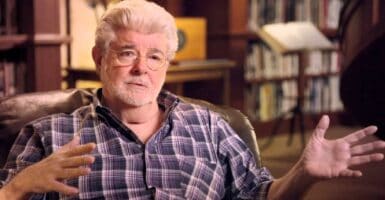The 8 Best Nature And Wildlife Documentaries Of All Time
Trials of Life, The Cove, and Grizzly Man top the charts as some of the best wildlife and nature documentaries.
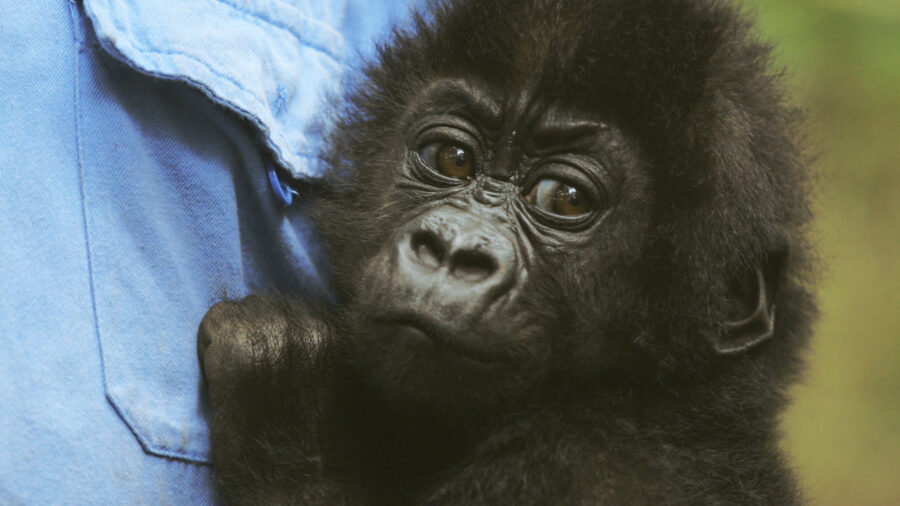
We live on a fascinating planet that has survived asteroids, ice ages, and numerous natural disasters. And through it all, nature and wildlife continue to adapt, likely way beyond what we humans will ever comprehend. In the entire time that Earth has been around, humans have only been here for a single blink of a cosmic eye, which is why it’s so important to watch nature and wildlife documentaries so we understand that this planet is bigger than we are.
Here are the best nature and wildlife documentaries to help us learn more about our planet and the important animals and ecosystems that cohabitate in this place we call home.
8. Winged Migration (2001)
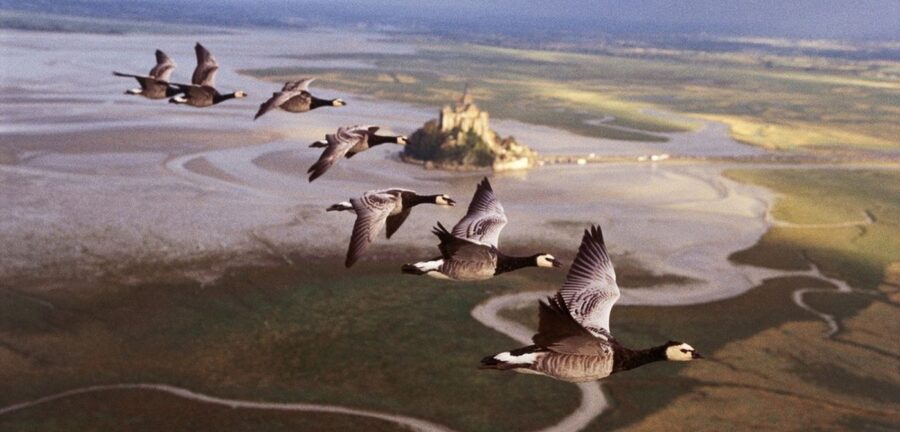
Winged Migration is a 2001 documentary about the tremendous journeys birds of flight undergo during their migration season. The film is visually stunning and took three years to film as the crew traveled to all seven continents across the world and braved every kind of weather and landscape in order to accurately capture the full pilgrimage these birds experience. Directed by Jacques Cluzaud, Michel Debats, and Jacques Perrin, this is one of the few documentaries that has been shot using almost entirely in-flight cameras, creating aerial footage that gives the viewer the illusion that they are flying along with the birds while watching the film.
7. Chasing Coral (2017)
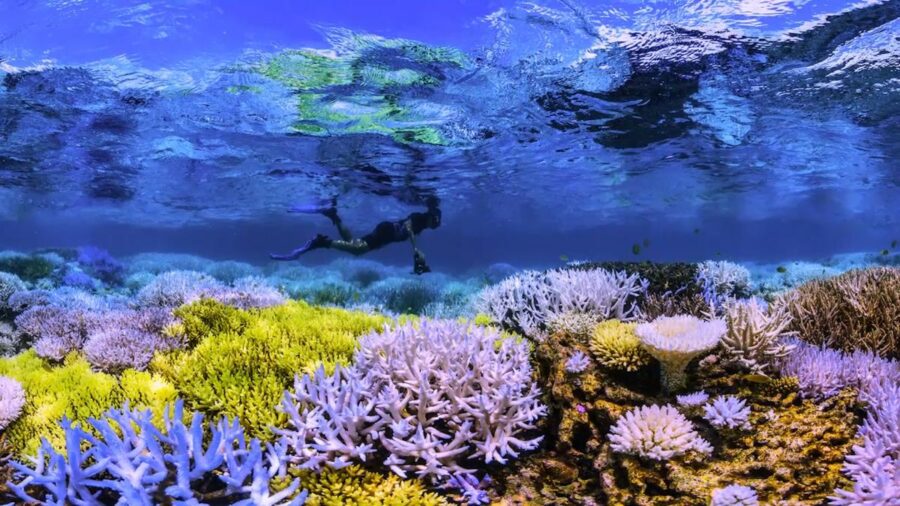
Chasing Coral is one of the best nature documentaries of all time, and it won the Audience Award for U.S. Documentary at the 2017 Sundance Film Festival. The film investigates the impact of climate change on coral reefs by following divers, scientists, and photographers who document their disappearances. The film also demonstrates the global efforts to save these delicate underwater ecosystems.
The documentary was directed by Jeff Orlowski, who previously directed another documentary called Chasing Ice, which has a similar premise to Chasing Coral. It was produced by Exposure Labs and premiered first at the Sundance Film Festival before being released for public viewership on Netflix in 2017.
6. Virunga (2014)

Virunga is almost like two documentaries in one as it teaches its audience about both the natural beauty and biodiversity of Virunga, as well as the elaborate political and financial issues surrounding invasion from oil companies and armed conflict in the region. Primarily, the documentary focuses on the brave efforts of park rangers in the Democratic Republic of Congo, highlighting four individuals in particular who are fighting to protect Virunga National Park, home to the last of the world’s mountain gorillas, who are endangered due to human activities like war, poaching, and oil exploration. The four characters the film focuses on are André Bauma, a gorilla caregiver, Rodrigue Mugaruka Katembo, a central sector warden, chief warden Emmanuel de Merode, and the French investigative journalist Mélanie Gouby.
5. Grizzly Man (2005)
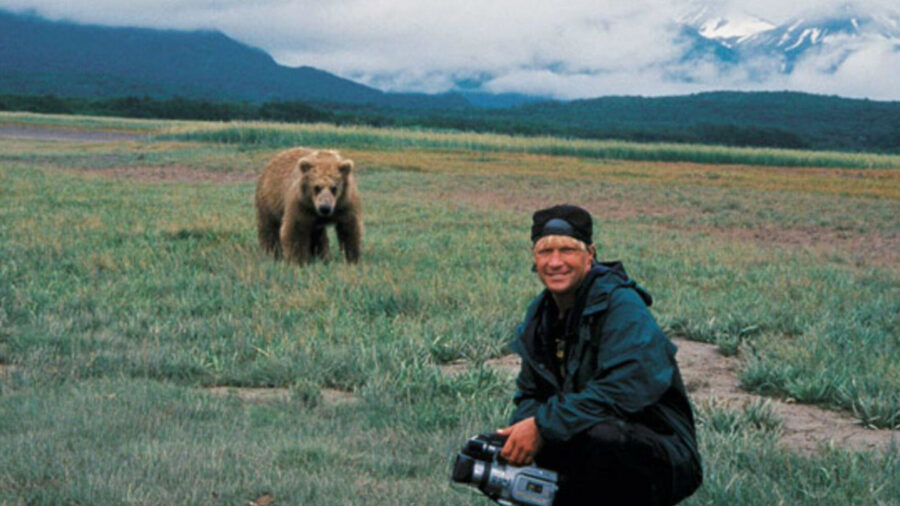
Werner Herzog directed one of the most chilling documentaries about a man named Timothy Treadwell who loved nature but could not respect it enough to leave it alone. Treadwell spent 13 summers living among brown bears while he camped in an Alaskan National Park. One year, he and his girlfriend decided to stay past the summer and continue cohabitating with the bears until October, a dangerous decision as this is the time when bears begin to collect food for hibernation and become more aggressive.
It was this choice that led to Treadwell and his girlfriend’s demise as they were both attacked and killed by a bear, a terrifying and tragic moment that was caught on Treadwell’s camera (though the footage has never been released to the public). Over the years that Treadwell spent with the bears, he collected hundreds of hours of footage, and it’s through these videos that Herzog was able to create Grizzly Man.
4. The Cove (2009)
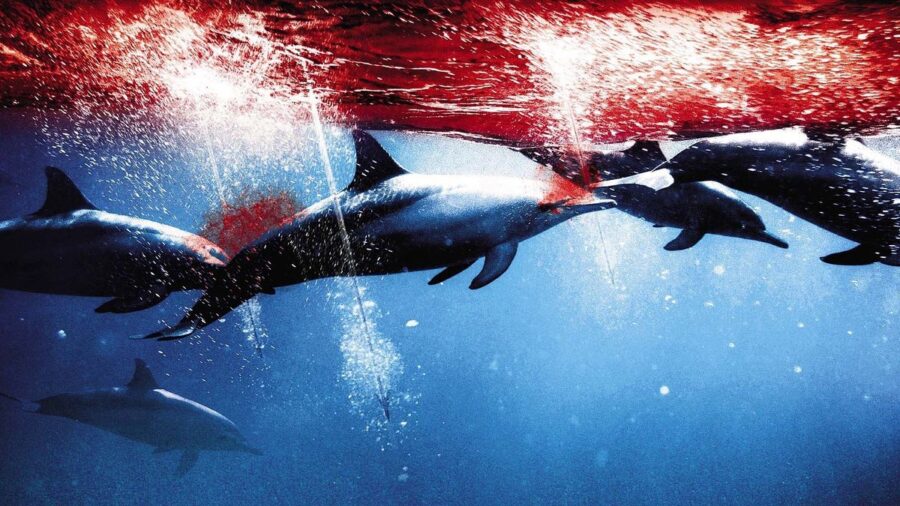
The Cove is one of the few documentaries that has been awarded an Academy Award, which it received for its impeccable storytelling, use of suspenseful exposé, and its call to action to stop mass dolphin killing. The film investigates and calls out Japanese fishing practices that involve the mass killing and capturing of dolphins as well as educates the public about dolphin captivity and the increasing danger of mercury poisoning from eating dolphin meat. The Cove was directed by Louie Psihoyos, a former-National Geographic photographer and a co-founder of the Oceanic Preservation Society, and the documentary persuades the audience from the point of view of ocean conservation.
3. The Trials of Life (1990)
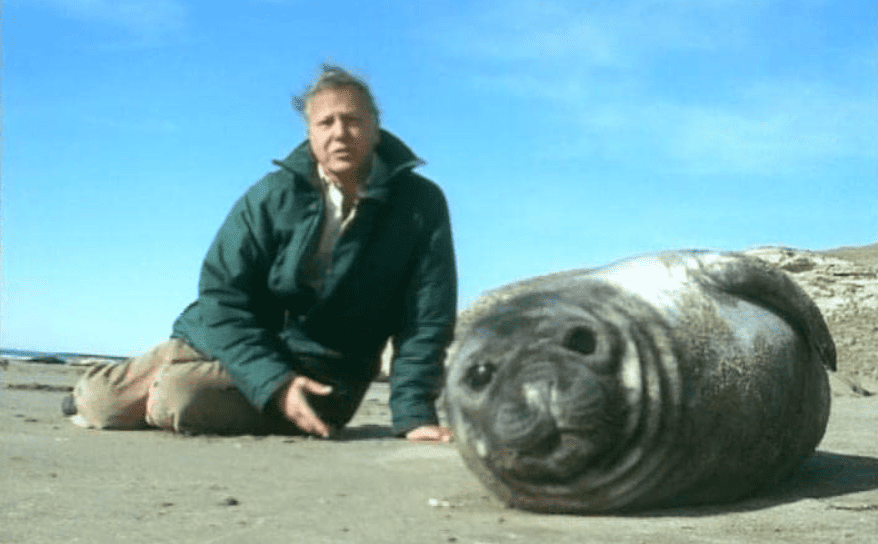
The Trials of Life is a BBC series consisting of 12 episodes, each of which is nearly an hour long, directed by David Attenborough. Attenborough’s later productions became more specialized observations of nature, but The Trials of Life, from 1990, offered a broader view of the world, with each episode of the series focusing on a different aspect of the life of animals from birth to adulthood, to the continuation of the species. The Trials of Life was the second in a trilogy of Attenborough ‘Life’ documentaries, following the release of The Living Planet and preceding the release of Life in the Freezer.
2. March of the Penguins (2005)
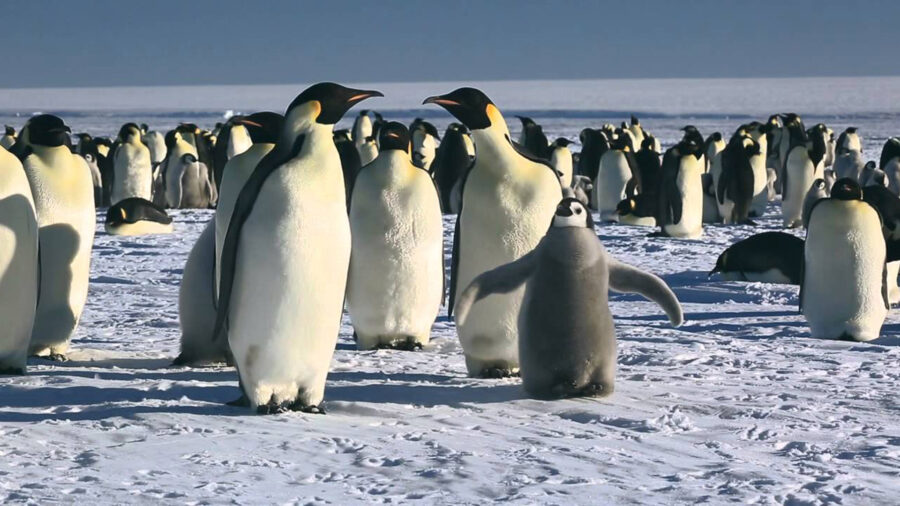
March of the Penguins was released in 2005 to critical acclaim, with viewers claiming that anyone with a heart would not be able to watch the film without being moved even a little bit. It’s one of the longer documentaries, coming in at a full feature-length run time of 86 minutes, and it was directed by French director Luc Jacquet.
The film follows the strange and dangerous journey that penguins follow every fall when it comes time to breed. Rather than mate near the ocean where they normally live, penguins march inland to their ancestral breeding ground, where they then spend months finding a mate and protecting their egg until it hatches. It took cinematographers Laurent Chalet and Jérôme Maison a full year of filming in isolation in order to collect enough footage for the documentary.
1. Planet Earth (2006)
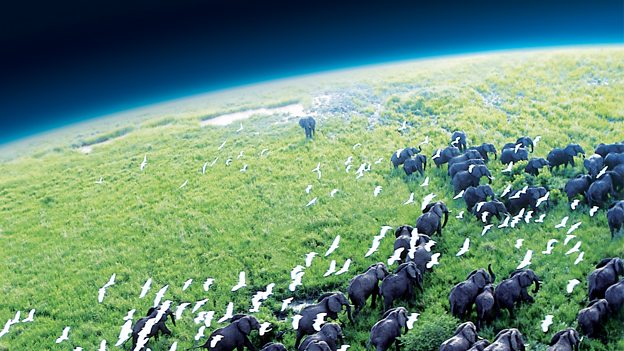
Planet Earth was one of the most groundbreaking documentaries to ever be created, not only because it is the most expensive documentary BBC has ever made or because it was the first to be filmed in high definition, but because of the vast amount of content, the documentary covers in the 11 hour-long episodes. Planet Earth explores various ecosystems and wildlife from around the world, with each episode focusing deeply on a specific one.
The film was highly praised by critics, and the series received numerous awards, including four Emmy Awards, a Peabody Award, and an award from the Royal Television Society.









